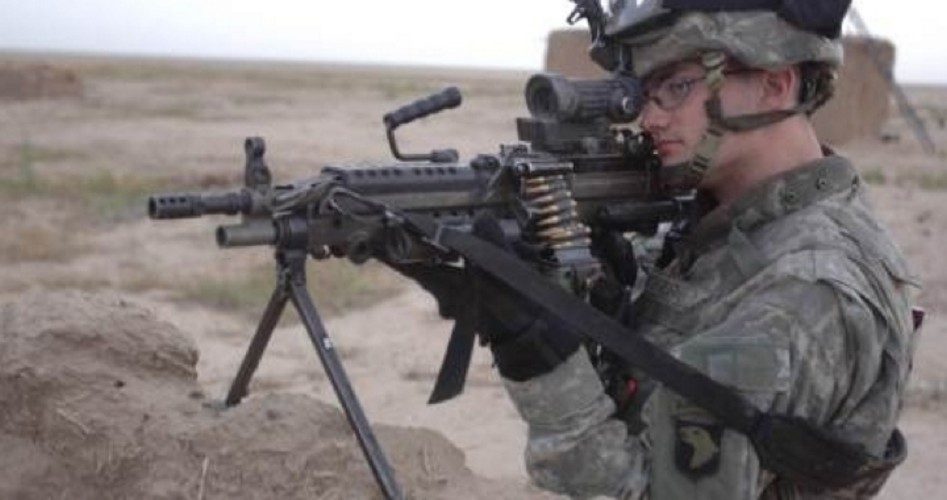
The U.S. Department of Defense has put forward a proposal for arming “moderate” rebel forces fighting the Assad regime in Syria, according to a CNN report based on information from two unnamed “Obama administration officials.”
“Both administration officials declined to be identified due to the sensitive nature of the information,” the report said. Speaking with reporters Wednesday, General Martin Dempsey, chairman of the Joint Chiefs of Staff, said only that “a number of options” are under consideration.
“We have any number of options under development that could expand our support to the moderate opposition, but no decision has been taken at this point,” Dempsey said. The Obama administration has acknowledged providing humanitarian aid, along with logistical and some military assistance, to the rebels in the 2 1/2-year-old civil war that has killed more than 100,000. Beyond that, training and equipping of the insurgents “has fallen under the purview of the CIA and has not directly been acknowledged by the United States government,” CNN reported.
Some members of Congress have been calling for months for the Obama administration to take a more active role in aiding and equipping the rebels. Republican Senators John McCain of Arizona and Lindsey Graham of South Carolina have been most vocal in calling for direct action, including missile attacks on Syrian airfields and the shooting down of Syrian planes, as well as the establishment of a “safe haven” for the opposition near the Turkey/Syria border.
President Obama asked Congress for authority to launch military strikes against the Syrian government following reports in August of chemical weapons being used against the rebels. Congress has not yet acted on the request, and polls have consistently shown the U.S. public opposed to intervening in the conflict. The administration’s push for military action lost much of its steam over the past weekend when Syrian President Bashar al-Assad agreed to the inspection and elimination of the government’s chemical weapons supply.
But the “options” for expanding U.S. support to the so-called moderate opposition are still in play, according to the Joint Chiefs chairman, who told the Senate Foreign Relations Committee earlier this month: “The path to the resolution of the Syrian conflict is through a developed capable moderate opposition, and we know how to do that. After dealing with the chemical weapons,” Dempsey said, “we would probably return to have a discussion about what we might do with the moderate opposition in a more overt way.”
But in Syria’s civil war, as in other Middle East conflicts, there is no handy scorecard to tell the “moderates” from the “extremists.” The growing numbers and influence of al-Qaeda forces among the Syrian opposition have been noted in numerous news reports in recent months, a fact emphasized by Russian President Vladimir Putin in his op-ed piece last week in the New York Times, arguing against U.S. military intervention in Syria. “There are few champions of democracy in Syria,” the Russian president wrote. He continued,
But there are more than enough Qaeda fighters and extremists of all stripes battling the government. The United States State Department has designated Al Nusra Front and the Islamic State of Iraq and the Levant, fighting with the opposition, as terrorist organizations. This internal conflict, fueled by foreign weapons supplied to the opposition, is one of the bloodiest in the world.
Mercenaries from Arab countries fighting there, and hundreds of militants from Western countries and even Russia, are an issue of our deep concern. Might they not return to our countries with experience acquired in Syria? After all, after fighting in Libya, extremists moved on to Mali. This threatens us all.
Indeed, the U.S. and NATO “humanitarian intervention” in Libya’s civil war in 2011 appeared a good deal less humanitarian after jihadists launched their deadly attack on a U.S. diplomatic outpost in Benghazi on September 11, 2012. Earlier this month the New York Times published a report of a video, smuggled out of Syria by a disillusioned former rebel, showing rebel troops brutally killing captured Syrian soldiers. The video, the Times noted, “offers a dark insight into how many rebels have adopted some of the same brutal and ruthless tactics as the regime they are trying to overthrow.”
Even if U.S. military and intelligence officials are able to identify, vet, arm, and train the “moderate” rebel forces in time to turn the tide against the government forces, that is no guarantee that should the Assad regime be overthrown, the “moderates,” and not the “extremists,” will be in charge of whatever new government might emerge — or that there won’t be further chaos in the interim.
The United States is not likely to find any real friends among the rebel forces fighting in Syria. Instead, we may find further cause to ponder the ironic “prayer” of Voltaire: “Lord, protect me from my friends; I can take care of my enemies.”


